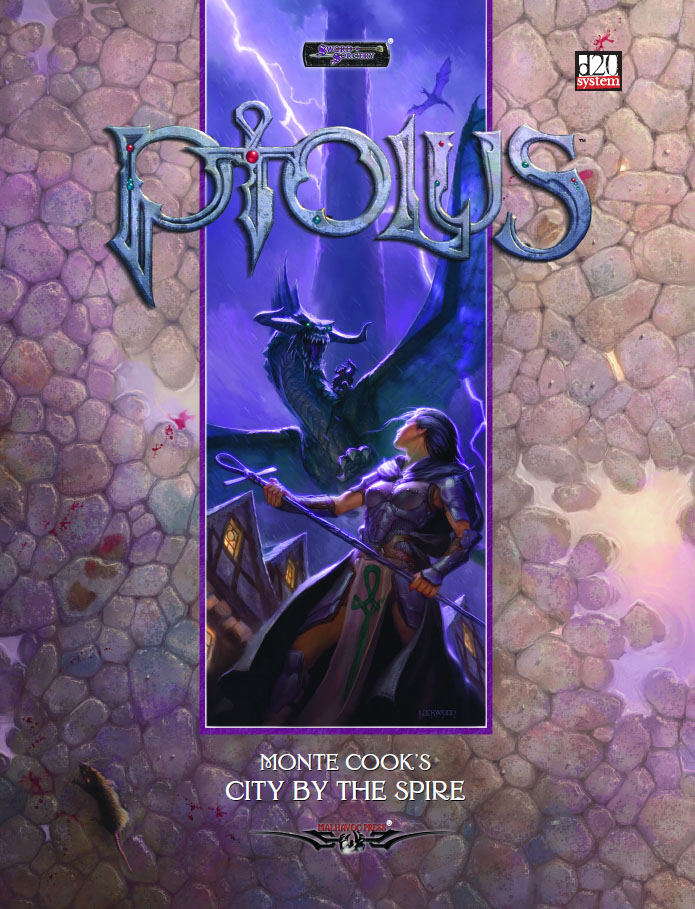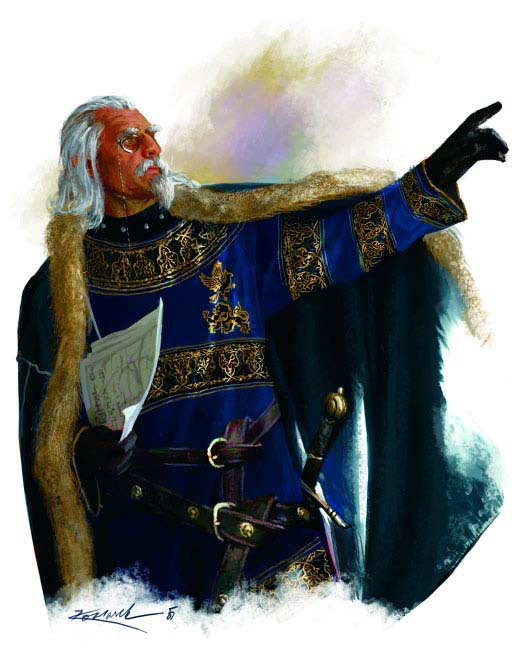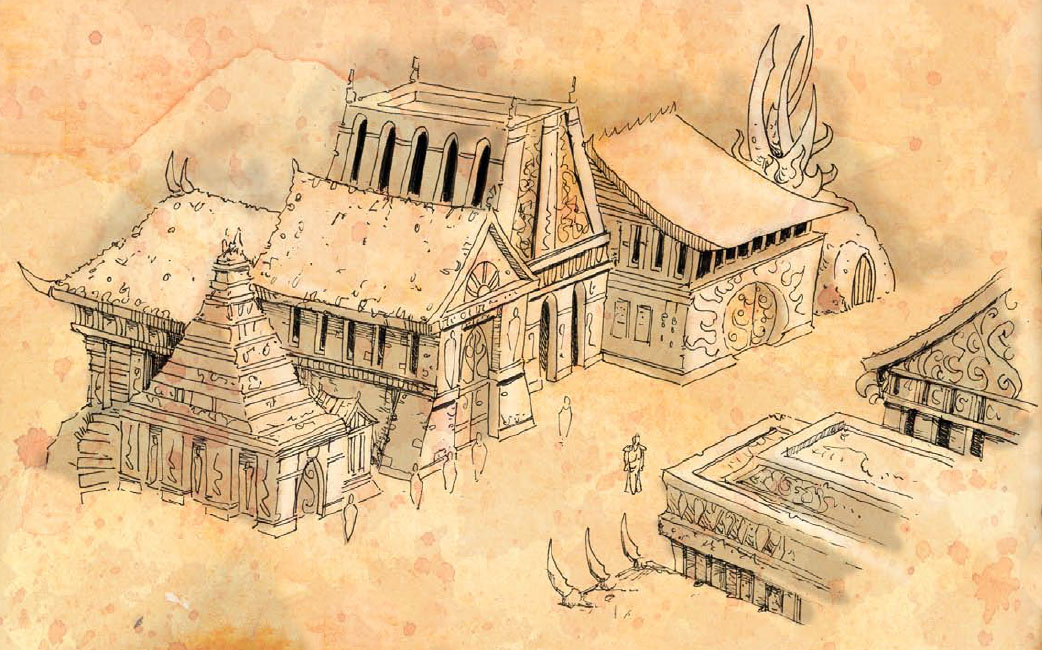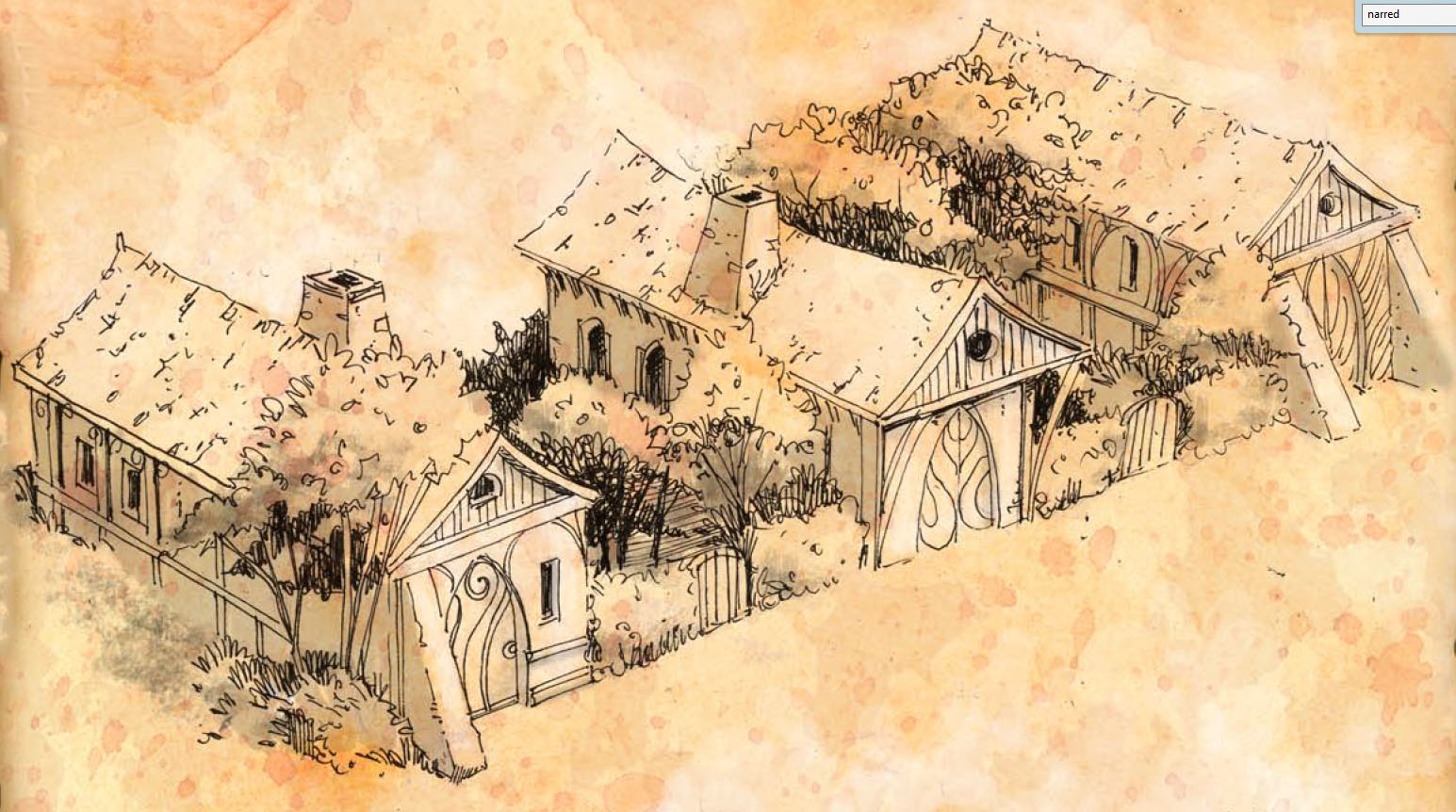Session 12A: Awkward Introductions
In Session 9, the PCs found a note mentioning a mysterious “Urnest”:
To our associate, Mister Linech Cran—
We are in desperate need of your most delicate shipments. As you well know, we have important work which cannot proceed apace without those shipments. Urnest assures me that the consequences will be most dire if you cannot fulfill the responsibilities you have pledged yourself to. But I am pleased to inform you that I have interceded on your behalf. You have until the third of Kadal to deliver those shipments promised to us these two weeks past.
Silion
In this session, while attending the gala at Castle Shard, they encounted Commissar Igor Urnst for the first time.
One was a tall, lean man with a mane of white hair down to his shoulders, a moustache, and goatee. He wore a monacle in one eye, contributing to his regal appearance; a dark blue tunic trimmed with gold; and a matching cloak trimmed with ermine. A heavy sword was strapped to his side and he wore several military honors upon his breast. Tee instantly recognized him as Commissar Igor Urnst, the leader of the city.
Urnst vs. Urnest. That’s not a typo. These are two different characters.
This sort of thing is one of the reasons why it can be valuable to keep a list of names handy for random NPCs, because otherwise your subconscious is likely to be drawn back to the same options over and over again. This is also something you need to watch out for if you’re drawing material into your campaign from many different sources, as it’s quite possible to find unexpected overlaps in naming.
 Neither was the case here. Both Urnst and Urnest are drawn directly from the Ptolus sourcebook. Just an odd quirk of the truly massive amount of material Monte Cook had generated over years of running his campaign and then injected into that mammoth tome.
Neither was the case here. Both Urnst and Urnest are drawn directly from the Ptolus sourcebook. Just an odd quirk of the truly massive amount of material Monte Cook had generated over years of running his campaign and then injected into that mammoth tome.
I recognized the potential for confusion because, when I was reading the Ptolus sourcebook, I did become momentarily confused. (“Wait… Are these guys related? Oh, I guess not.”) I probably should have taken my cue from that and changed one of the names to something more distinct, but the thought got lost in my own labyrinthine process of prep.
But as soon as Commissar Urnst showed up in this session, Elestra’s player piped up, “Wait… Don’t we have a note mentioning this guy?” The only reward to be gleaned from my earlier confusion was that I instantly recognized what had happened and was able to quickly clarify the situation.
A DIGRESSION ON DELIVERING META-INFORMATION
It can be argued that the players should have simply been allowed to roll with their confusion and resolve it – or fail to resolve it – on their own. Usually, I would agree with that: Connections, relationships, and/or truths that seem “obvious” to you as their creator will not be obvious to the players, and that’s okay. It’s better for the players to figure these things out for themselves rather than having you disrupt their process of discovery.
In this particular case, however, there were only two possible outcomes: First, and most likely, they’d have laboriously dug through their trove of handouts until they found the one containing the name “Urnest”, realized their recollection was mistaken, and moved on. This was undesirable because we were in an escalating sequence designed to start the Castle Shard party off with a big  bang. Disrupting the escalation for a wild goose chase because I’d failed to change a confusion name had no pay-off. It was much easier to just say, “Actually, the name in that letter was ‘Urnest’,” share a laugh about Sauron vs. Saruman, and move on to the meat of the session.
bang. Disrupting the escalation for a wild goose chase because I’d failed to change a confusion name had no pay-off. It was much easier to just say, “Actually, the name in that letter was ‘Urnest’,” share a laugh about Sauron vs. Saruman, and move on to the meat of the session.
The other possible outcome, which I considered extremely unlikely, was that they would take the time to find the letter and then conclude that it was a typo, meaning that Urnest and Urnst WERE the same person! It can be argued that this was would be a natural, organic consequence of play and it would be perfectly valid to expore it through play, most likely with some very weird and confusing interactions with the Commissar during the party trying to suss out who Silion was. Or maybe it would even result in them feeding some bad intel to Lord Zavere, creating all kinds of weird fallout in the rivalry between Castle Shard and the Commissar!
Here’s what it boils down to: You have a limited amount of time at the gaming table, and that time therefore has value. There are also opportunity costs to consider. Was a 5-10 minute search through handouts culminating in, “Oh, I guess it wasn’t the same guy.” a good use of our time? Would the (apparently null) value of that experience be worth giving up a strong, well-paced introduction to the Castle Shard party?
Other GMs might make a different assessment than I did.
TRACKING THE NPCs
In the Shadow of the Spire has a very large cast of supporting characters. When running campaigns like this – with large numbers of NPCs who have complex relationships with both each other and with the PCs – it is tremendously important that both the GM and the players are able to keep track of them all.
If the GM fails to keep track of his supporting cast, the campaign will founder in confusion, contradiction, and missed opportunities. The quality of the players’ interactions with the NPCs will likely also suffer as the GM struggles to portray them with consistency and depth.
As for the players, the interactions with these rich and diverse characters is where a great deal of the immersion and reward from these types of campaigns come from. Action and meaning is driven out of their relationships with the NPCs, and if they can’t track them, the campaign quickly becomes a tumultuous chaos – a great deal of sound and fury signifying nothing to them.
Ultimately, of course, the players need to take some responsibility for this. But there are a number of techniques that the GM can use to encourage and facilitate the groups’ ability to track the supporting cast; they can grease the wheels, so to speak. You might start by reviewing some of the techniques described in Getting the Players to Care, but there’s also a number of specific techniques when it comes to NPCs.
ORGANIZE YOUR NOTES. The first thing you need to do as a GM is to make sure your own house is in order. You need to keep well-organized and easy-to-use notes on the important NPCs in your campaign.
I keep an NPC Roleplaying Template for each member of the supporting cast. When the In the Shadow of the Spire campaign started, I kept them all together in a single alphabetical file. As the complexity of the campaign grew, however, I broke them into a number of broad categories (largely based on a purely utilitarian basis, although obviously influenced by own personal understanding of how different characters – and groups of characters – interacted with each other and were likely to interact with each other). As I write this, those categories include:
- General
- Ghostly Minstrel
- Banewarrens Protectors
- Moonsilver Elves
- Chaos Cultists
- Imperial Church
In doing this, it’s important to distinguish between one-off or scenario-specific characters and campaign characters (i.e., the recurring characters who actually make up your supporting cast). If you don’t distinguish between them, your notes will become choked with irrelevant noise, drowning out the signal and making them more difficult to use.
Of course, it’s also important to recognize that many characters who are initially introduced for a specific scenario will become campaign characters as a result of how events play out and/or how the PCs interact with them. (This is similar to the process of certain NPCs “clicking” with the players that I discuss in the Party Planning game structure, except played out on a larger scale: When the players particularly like a particular character, they’ll seek them out, become interested in their lives, and otherwise keep reincorporating them into the campaign as long as you don’t get in their way.)
ESTABLISH NAMES EARLY AND OFTEN: Imagine your supporting cast as a filing cabinet. Each character is an individual file folder, and the character’s name is the label on that folder. If the players lose track of characters’ names, it’s like all the labels in your filing cabinet have fallen off.
You want to make sure those names stick. So try to get a name applied to an NPC as quickly as possible. (There can be countervailing concerns, but in general nameless people doing mysterious things is a spice best used lightly.) And once the players have a name for the character, use it over and over and over again. It might make for bad prose in a novel, but defaulting to an NPC’s name (“Igor walks across the room towards you”) is I think generally superior to our normal practice of defaulting towards pronouns (“he walks across the room towards you”).
STRONG VISUAL REFERENCES: Giving your NPCs an actually face (in the form of a picture) is a great way to make sure they stick in the memories of your players. If you find visual reference like this, make sure to display it when the character is introduced and get it back on the table every time they show up.
These visual references can also be a big help when NPCs start talking to each other. Simply point to or hold up the NPC currently talking and it can go a long way to keeping conversations clear even when you’re just talking to yourself.
A couple of provisos here, though. First, better to have no picture than a picture that isn’t right. “She looks like this, except her hair is different” doesn’t work in practice, because the visual reference will override the description. (You can run into a similar problem with proxy miniatures, which is why I prefer to use purely generic options unless I’ve got the right miniature for the job.) As a corollary, boxing yourself in by only being willing to create NPCs that you can find visual references for is obviously going to cripple you creatively.
Second, “this guy can’t be important, he doesn’t have a picture” (and vice versa) as a form of metagame knowledge can be a serious problem. (And I find it to be so even if the players aren’t specifically acting on that knowledge; it still ends up coloring their understanding of the game world.)
So add chaff to the signal: Use pictures for NPCs who aren’t important. And be willing to have important NPCs who don’t have pictures. (The first proviso will naturally assist you here.)
In the absence of (and in addition to) strong visual references, finding a unique voice, physical mannerism, or strong personality are also ways to help your players clearly distinguish (and remember!) different NPCs. The NPC Roleplaying Template will help with this, too.
KEEP THEM ONSTAGE: The best way for the players to become familiar with the supporting cast is, conveniently, to use them. Don’t “save” an NPC until it’s time for some big moment with them; give them an active life and keep them involved with the PCs. This is important not only so that the players don’t respond to the big moments by saying, “Who?” but so that your players will actually care about the NPCs.
The good news is that beyond a certain critical mass (and with characters that the players care about), they’ll start seeking out and creating these interactions on their own. I would know that a particular NPC had successfully clicked with my group when they’d get back to the Ghostly Minstrel and ask, “Is Jevicca here tonight?”
When prepping for a session, take a look at your supporting cast list and ask yourself if there’s anybody who the PCs haven’t seen in awhile who should be brought back onstage. Schedule events with them in your campaign status document.
Remember that you can also reincorporate members of your existing supporting cast when creating new scenarios. You should also discover that new scenarios are being born out of the evolving relationships the PCs have with the supporting cast.
PRUNING AND FOCUSING: On the other hand, you also have to know when to let go of certain members of the supporting cast.
This is true from a practical standpoint if nothing else: If all you ever do is introduce new characters to the campaign, the supporting cast will eventually collapse under its own bloated weight. As you (and your players) gain more experience – both generally and in terms of a specific campaign – you’ll find that the “active size” of the supporting cast you can manage will grow. But, ultimately, there’s a limit. As you add new characters, you have to be willing to let some of the old characters exit stage right to make room.
- Recognize when a character’s story is done (and there are no more stories to tell)
- Recognize when the players don’t care any more (which is not the same thing as them hating the character)
- Recognize when the NPC has chosen to move on (either from the PCs, from the area, or from the shared interests that drew them together)
This is a process of pruning. But it can also be thought of as a process of focusing. Instead of just thinking negatively (what characters can I do without?) also think positively: What characters do you want to spend more time with? What characters have interesting stories to share?
Saying goodbye to an NPC, of course, doesn’t mean saying goodbye forever. Old friends (and enemies) can always return.



 And of course, sometimes you do need to draw a hard line. The One Ring isn’t the One Ring if it isn’t the One Ring; it can’t be part of a JCPenney jewelry collection.
And of course, sometimes you do need to draw a hard line. The One Ring isn’t the One Ring if it isn’t the One Ring; it can’t be part of a JCPenney jewelry collection.











